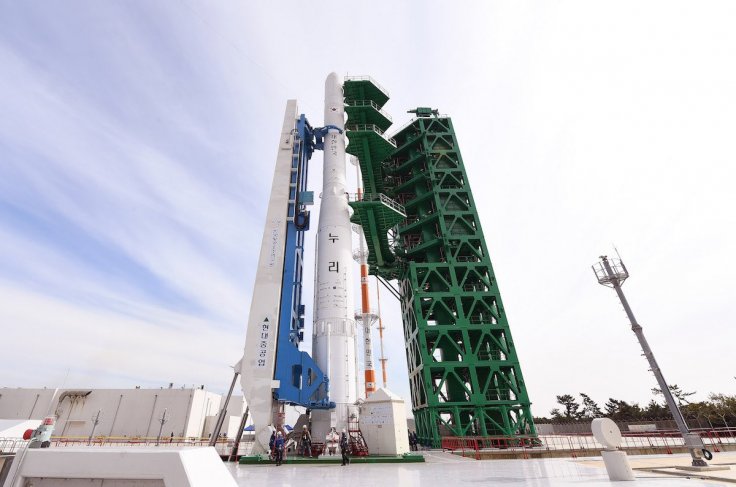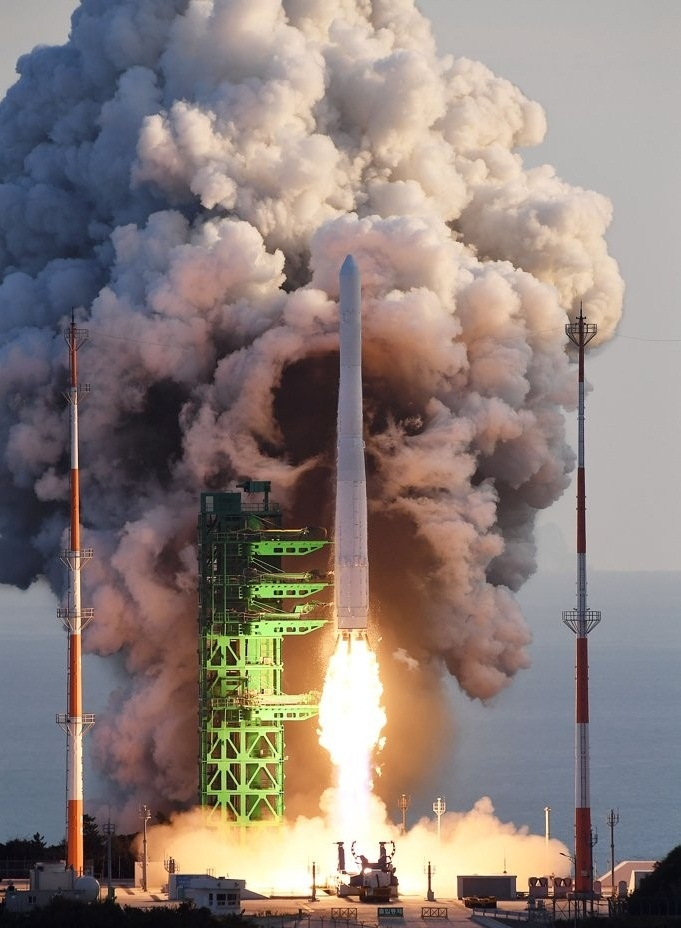South Korea is launching its homegrown space rocket Nuri for the second time on Tuesday after a technical glitch in the oxidizer tank demanded for the mission to be called off last week.
According to the Korea Aerospace Research Institute (KARI), a meeting was arranged on Monday for the launch management committee of Nuri and the science ministry with KARI for discussing the final technical inspection of the space rocket. By taking into consideration the weather forecast for the day, the launch was finally agreed upon by the officials.
The Naro Space Center in Goheung, where Nuri was transported back after the technical difficulties were reported, will the launching platform as decided by the authorities.

According to the Korea Times, the 200-ton space rocket is scheduled for a take off at 4 p.m. and the exact timing will be announced by KARI around 2:30 p.m.
This is not Nuri's first liftoff as the space rocket had attempted a flight in October last year. It successfully reached its target altitude of 700 kilometers but unfortunately could not put a dummy satellite into the orbit. This happened because of an engine burn that occurred earlier than expected.
This time however, the KARI engineers are fully prepared. Loaded with a 162.5-kilogram performance verification satellite to test the rocket's capabilities, Nuri will also be equipped with four cube satellites. And a 1.3-ton dummy satellite. All these are developed by four Korean universities for academic research purposes, Korea Herald reported.

Apart from this, the engineers have attempted to further strengthen Nuri by having an anchoring device of the helium tank installed inside the rocket's third-stage oxidizer.
On the success of this mission, South Korea, which has invested more than 2 trillion won ($1.8 billion) in Nuri since 2010, will be known as a powerful launch-capable country like Russia, France, China, Japan, India and the United States.
The country had conducted its first-ever Naro space rocket launch in 2013 with the first stage built in Russia and is now planning for 4 more Nuri rocket launches by 2027.









